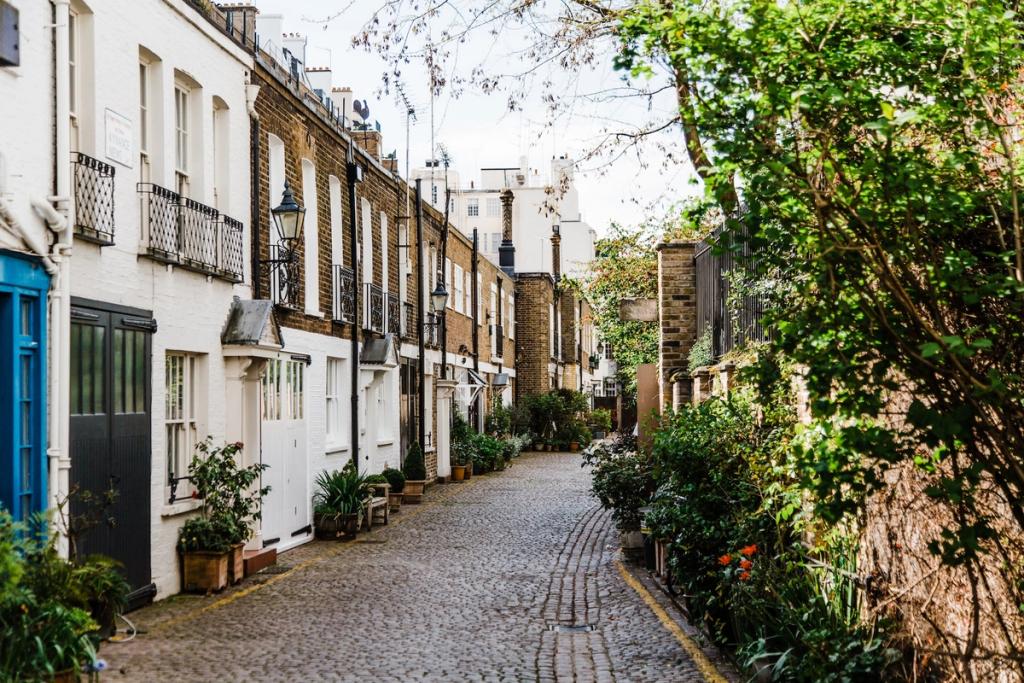How Much Deposit Do You Really Need to Purchase a Home in the UK?
Introduction
For most homebuyers, the deposit is one of the biggest obstacles to purchasing a home. Saving enough for a deposit on a house can take years of disciplined saving and budgeting. However, there are options for those who don't have tens of thousands in the bank.
Deposit requirements vary based on the type of mortgage you get. The minimum for a conventional mortgage is typically 5-10%. While a bigger deposit is better, it's possible to buy with less than 20% down.
With rising home prices and inflation, saving up for a deposit is more difficult than ever these days. The average home price has increased substantially, while wages have not kept pace. First-time homebuyers often struggle to sock away funds for a deposit when much of their income is eaten up by high rents and other living expenses. Creative solutions and perseverance are required for buyers to accumulate sufficient savings in this challenging market.
Understanding Home Purchase Deposits
What is a Deposit or Down Payment?
A deposit refers to the amount a buyer pays upfront when purchasing a property, before taking out a mortgage loan for the remainder of the price. The minimum deposit depends on the type of mortgage chosen. Most lenders offer mortgages with 5-20% down, while some government schemes like Help to Buy allow 5-10% down payments. First time buyers can access 5% deposit mortgages and Help to Buy Equity Loans. The larger the deposit, the lower the interest rate and monthly payments tend to be.
The Role of Your Credit Score in Down Payment Amounts
Your credit score plays a key role in the mortgage terms and deposit requirements lenders offer. Having an 'excellent' credit score may help you unlock the most favourable mortgage rates and down payment options from 5% to 95% loan-to-value ratios. Improving your credit score by paying bills on time and keeping credit card balances low can mean needing less cash upfront when applying for a mortgage.
How to Calculate the Minimum Deposit for a House
To determine the minimum deposit required to buy a house, research the popular mortgage schemes like Help to Buy, Lifetime ISAs, and standard 5-10% deposit mortgages. Compare their criteria and your situation to see which you qualify for based on your credit score, income, existing debts and the property price. The program with the lowest deposit requirement that you are eligible for indicates the minimum needed. For example, a first time buyer may qualify for a 5% deposit mortgage or 5-20% under Help to Buy. This allows them to purchase with just 5% down, taking out a mortgage product to cover the remaining 95%.
Deposit Assistance Programs
Government-Sponsored Deposit Assistance
The UK government offers several programs to assist buyers with coming up with a deposit to purchase a home. Help to Buy Equity Loans allow buyers to fund 5-20% of the property price via an equity loan, only requiring a 5% cash deposit. Lifetime ISAs offer a 25% government bonus on deposits saved, up to £1,000 annually. Forces Help to Buy gives service members an interest-free salary advance to cover their deposit. First Homes helps local first-time buyers purchase new builds at 30-50% market discount. These government schemes expand deposit options for UK homebuyers. If you're a first time buyer, you can read more about this on our first time buyers article.
Deposit Gifts from Family and Friends
Gifted deposits from relatives are a popular way first-time buyers raise funds for a deposit in the UK. The Bank of Mum and Dad lends or gifts over £5 billion annually to help children buy homes. Parents can gift cash directly, or guarantee part of the mortgage loan. Grandparents can also gift or leave inheritance to cover deposit costs. Accepting gifts from family is an option that can significantly boost deposit savings for buyers who qualify.
Deposit Grants for First-Time Homebuyers
Several organisations offer deposit grants to support first-time homebuyers in the UK. Some employers offer deposit grants through workplace homebuyer programs. The government's Affordable Homes Program partners with developers to reserve units for first-time buyers, often with deposit grants up to £25,000 available. Combining a grant with your own savings can help first-timers cover the deposit faster.
Saving Strategies for Your House Deposit
Building a Deposit Fund: Tips and Tricks
Saving up enough cash for a deposit can be challenging for UK first-time buyers. Building your deposit fund faster requires diligent saving strategies. Set up automatic monthly transfers into a dedicated deposit savings account to consistently build funds over time. Consider moving in with family rent-free to accelerate savings. Any windfalls like bonuses, tax refunds or inheritance should be directly added to your deposit fund as well. Invest lump sums in high-interest savings accounts. Finally, download money-saving apps to find deals and track spending so more disposable income can be diverted to your deposit goal.
Downsizing and Budgeting: Maximizing Your Savings
Trimming expenses and downsizing your lifestyle are essential to maximize deposit savings potential in the UK. Those renting should consider getting a flatmate to cut housing costs. Set a reasonable monthly budget for eating out, entertainment, holidays and other discretionary spending to identify areas to scale back. Avoid unnecessary purchases and impulse shopping that eat into your deposit fund. Meal planning, switching utilities providers and buying second-hand can also create extra savings you can add to your deposit each month.
The London Factor: Understanding Deposits in the Capital
London's Unique Housing Market: Why Deposits Differ
Due to exceptionally high property prices, deposits to buy a home in London are typically much higher than the rest of the UK. The average London deposit is more than £110,000 - over double the national average. Supply constraints and strong demand pushes prices and deposit requirements up in the capital. High rents also make it harder for prospective buyers to save for a deposit when most of their income goes to housing costs. While 5-10% deposits are common outside London, buyers in the capital often need 20% or more to buy. Maximizing your deposit can make London properties more affordable month-to-month.
Conclusion
Buying a home in the UK’s challenging market requires tenacity and creativity when it comes to saving for a deposit. With property prices still outpacing salaries and the cost of living, accumulating enough savings is proving harder than ever for prospective first-time buyers in 2023. The long road to purchase can be disheartening.
While today’s conditions make for an uphill battle, the reward of homeownership is still within reach. Taking small consistent actions to save, limiting expenses, utilizing government schemes, seeking gift support, and getting creative can slowly grow your deposit fund over time. Establishing a solid budget, improving your credit, and exploring all options will position you to buy sooner.
The information provided in this article is for general informational purposes only. It should not be considered financial advice. Individual financial situations differ, so you should consult a qualified financial advisor for your individual needs.







